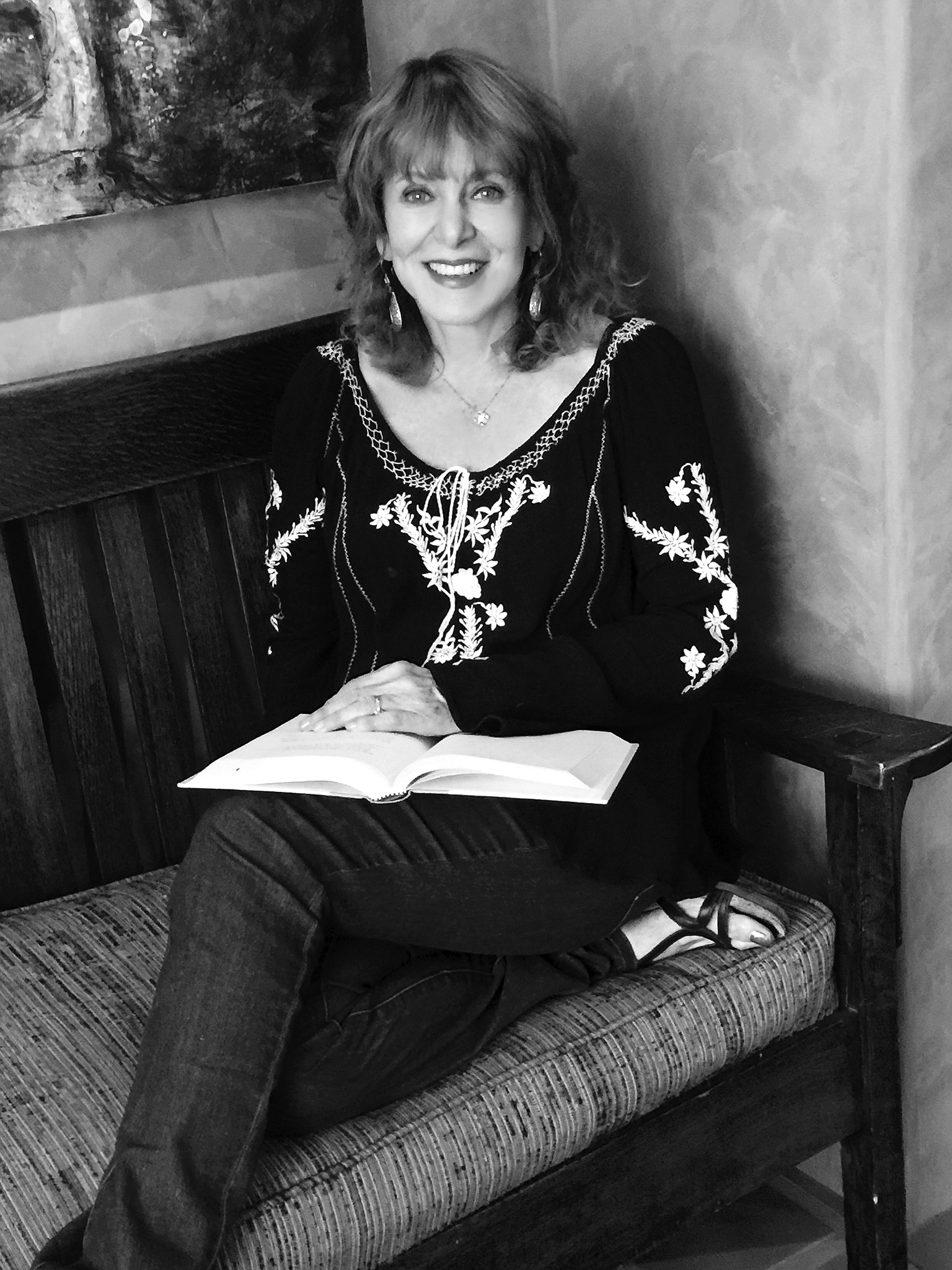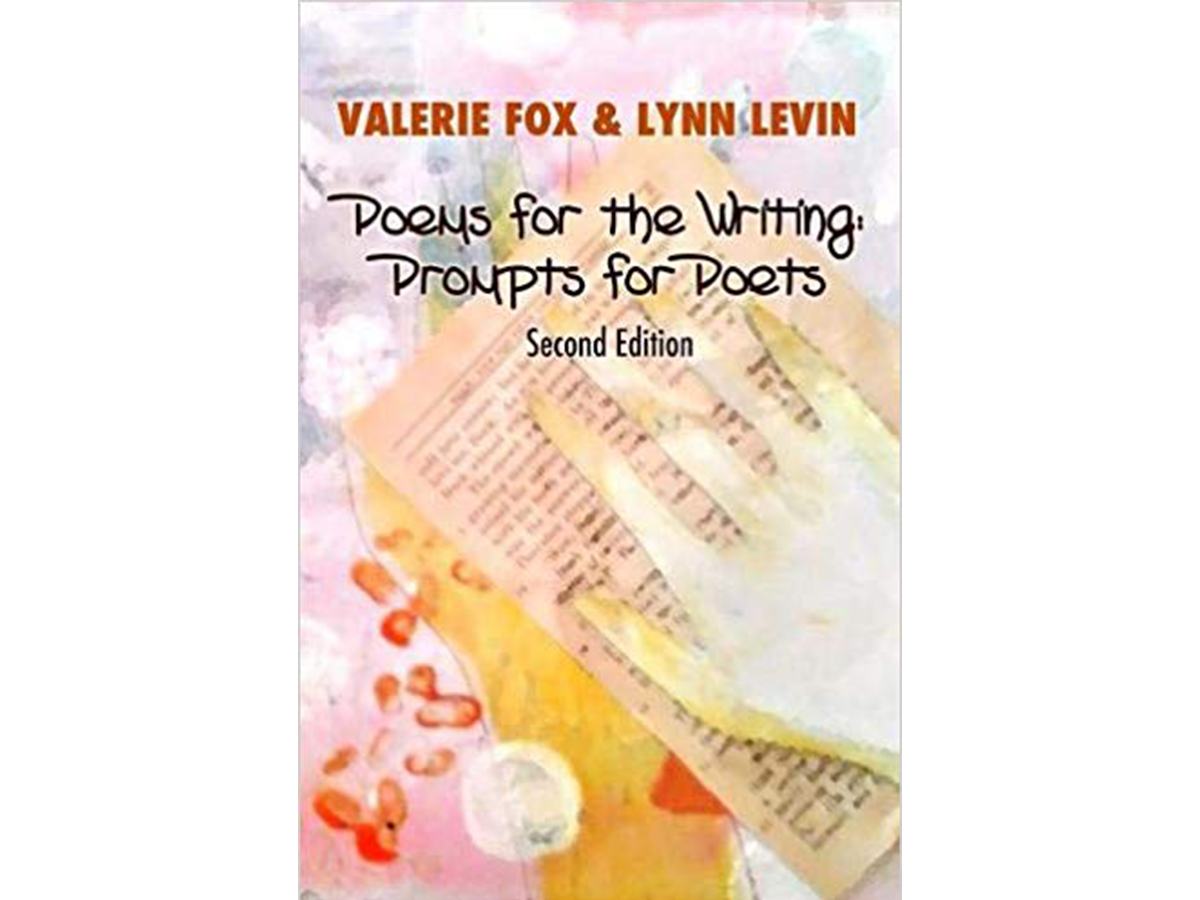As a long-time fan of poet Lynn Levin’s trenchant, sparkling-bright verse, I was delighted to discover—and put to good use—the equally smart and inspiring collection of poetry prompts and poems she developed with fellow poet and writing instructor Valerie Fox. Since then, this compendium of inspiration and solid writing advice has earned a prominent place in numerous classrooms and workshops, as well as on the bookshelves of working poets. And now, the completely revised new edition of Poems for the Writing: Prompts for Poets is bigger, better, more fun and more helpful than ever.
Fox and Levin have started by adding six new prompts—every one a proven winner in extensive classroom and workshop-testing. They’ve also added a treasure trove of smart new poems—while wisely keeping poet Don Riggs’ witty line drawings, which further enliven the book. Moreover, they’ve made the book even easier to use by giving each prompt its own chapter, complete with intriguing sample poems illustrating various ways the prompt can be interpreted, and suggestions for personal and classroom use.
But most important to me—and, I suspect, to any poet who has an occasional dry-patch or wants to break into fresh terrain—the prompts themselves are as appealing as a box of ripe figs. They whet one’s appetite to write. And this should make the book invaluable to creative writing teachers intent on helping their students enjoy exploring various modes of poetic expression and acquiring new tools of the craft. It will even boost the confidence of teachers who may be new to teaching poetry writing.
Unlike so many of the generally rather simplistic prompts readily available in journals and on the Internet (e.g. write a poem about the day a child is born…what does your favorite color taste like… compare and contrast the personalities of two people you know), these suggestions grab the imagination and keep it engaged. The very first chapter, for example begins—
At one time or another, you may have had the unpleasant situation of being shut out of something: a business meeting, a party, a conversation, or your sweetheart’s apartment or bedroom.
There’s a poem for that: the paraclausithyron.
Before it is even introduced, the millennia-old motif of a lament before a lover’s locked door—most famously used by Ovid—is made relevant to someone living in our here-and-now, everyday world. For example, Alina Macneal’s “Winter Girlfriend” (Is my knocking too loud/ too insistent?/Am I bothering you? /Sorry…) entices with its combination of humor and entreaty.
Among the prompts new to the second edition is the Superhero Poem. This prompt invites poets to create their own superheroes or write about those that already exist in pop culture. Jeannine Hall Gailey elegizes a video game heroine who must die over and over again. In a poem that steps into both fantasy and real-life drama, Samuel Cook creates a lonely teenage girl who dreams of fighting villains.
Another prompt that I’ve especially enjoyed (and has brought me happy results more than once) is the Cameo Cinquain—a five-line portrait that captures a unique aspect of a friend, enemy, co-worker, movie star, beloved pet, or anyone else. Its only requirement is a specific syllable count for each line. And Fox and Levin explain most clearly how these very minimal formal elements make the cinquain a natural vehicle for wit—and prove it with nine smart, lively example poems, each of which ends in an illuminating two-syllable snap.
The chapter on the cinquain also exemplifies the pain-free ways Poems for the Writing: Prompts for Poets introduces the use of form and demonstrates how much it can add to a poem’s affect. But for those with a real penchant for form (and numbers), Fox and Levin go much further by offering the Fibonacci poem prompt with more than one way to base a poem on this centuries-old, purportedly biological sequence.
Equally stimulating just-added chapters challenge the writer to stand at a cross-roads, real or imaginary, and describe the goings on or to explore how life might have gone otherwise if one could go back and change a specific moment in time (this well may be my next poem!). But while many of the prompts mentioned lead largely to poems in the lyrical/narrative tradition, others are conducive to list poems or prose poems. Still others incorporate found texts or even lead to a surreal approach.
Write What You Don’t Know, which involves creating a scene for a play not yet written, has produced, for instance, Valerie Fox’s intriguing “Property Plot for the Voyeur’s Handbook” with the following start—
On stage:
Persian carpet with scattered papers, film canisters labeled luck and perseverance, dictionary circa 1900, battery installation instructions (for galvanism, variable number of dry cells)
Cushions, silk. lipsticks (Mimi’s)
…Puberty…Petticoats
And The Faux Translation is exquisitely exemplified by Daniela Elza’s “TRANS/LATE” which ends:
let the train in the distance
rattle out its questionable logic
it only runs in two directions
and this exchange has already missed
its night stop.
is already condemned.
and wanted posters for its arrest
cranked out on a letter press.
Together, the prompts in this expanded edition encourage the poet to explore the imaginary, everyday and exotic, to delve into the humorous and sensual, or even, as in The I-Hate Poem, to reap the fruits of anger. And as you may well have already surmised from the preceding snippets, the book showcases poems from a range of writers: from students and members of writing groups to renowned poets. All these new ideas and engaging example poems will keep you returning to the second edition of Poems for the Writing: Prompts for Poets for the joy of reading them, as well as for inspiration.
Poems for the Writing (Prompts for Poets): Second Edition
by Valerie Fox and Lynn Levin
Blurb
Published on July 18, 2019
146 pages

Joan Roberta Ryan is the author of the poetry collection Dark Ladies & Other Avatars (3: A Taos Press, 2017). Her poems have appeared in numerous reviews, including the Atlanta Review, Nimrod, The Sow’s Ear Review, Spillway, Naugatuck River Review, Ekphrasis, Euphony, Roanoke Review, Calyx, Cold Mountain Review, Off the Coast, Cape Rock, Crab Orchard Review and The Taos International Journal of Poetry. And she is currently working on a collection of poems on the secret Jews of northern New Mexico.
